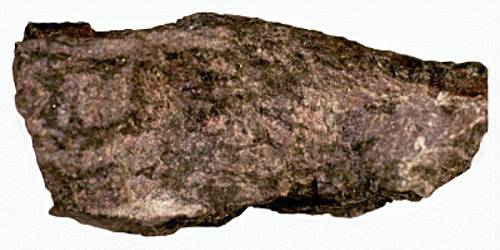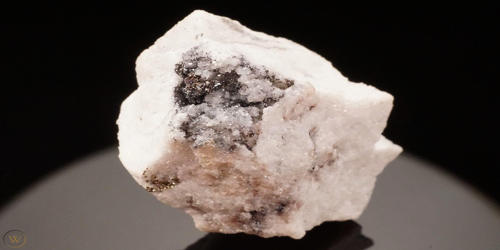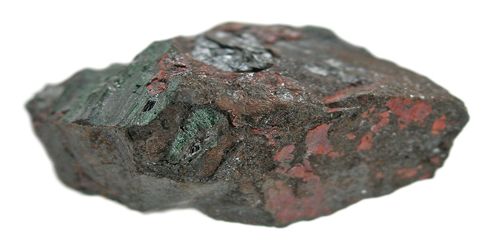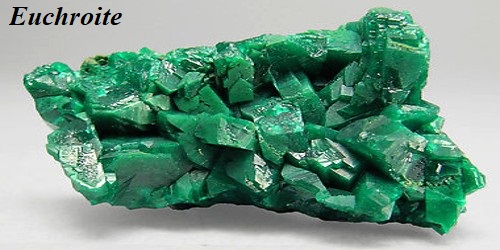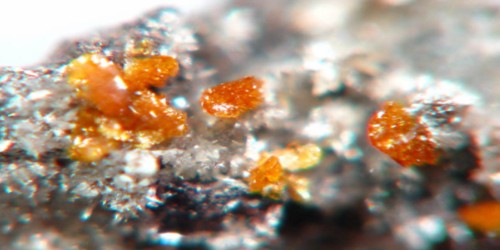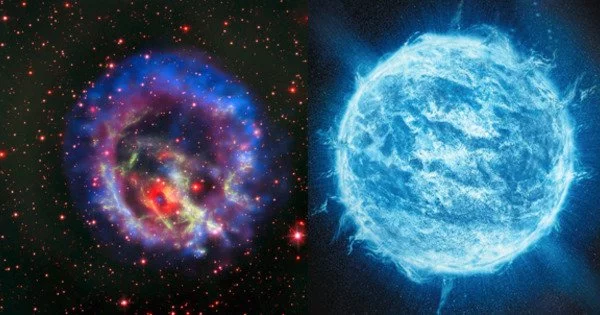Cerite is a complex silicate mineral group containing cerium, formula (Ce, La, Ca)9(Mg, Fe+3)(SiO4)6(SiO3OH)(OH)3. It is a mineral consisting of a hydrous silicate of cerium and allied metals occurring generally in brownish masses (hardness 5.5, specific gravity 4.86). The cerium and lanthanum content varies with the Ce rich species (cerite-(Ce)) and the La rich species (cerite-(La)). Analysis of a sample from the Mountain Pass carbonatite gave 35.05% Ce2O3 and 30.04% La2O3.
Cerite was first described in 1803 as an occurrence in Bastnäs in Västmanland, Sweden.
General Information
- Category: Silicate mineral group
- Formula: (Ce,La,Ca)9(Mg,Fe+3)(SiO4)6(SiO3OH)(OH)3
- Crystal system: Trigonal
- Crystal class: Ditrigonal pyramidal (3m) (same H-M symbol)
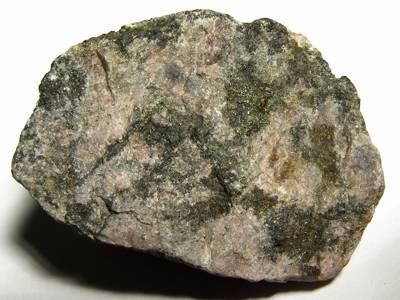
Properties
- Color: Clove-brown with a reddish tinge; pale lavender-brown to colorless in thin fragments
- Crystal habit: Massive granular
- Cleavage: None
- Fracture: Uneven
- Mohs scale hardness: 5 to 5.5
- Luster: Vitreous to resinous
- Streak: White to greyish white
- Diaphaneity: Subtranslucent to opaque
- Specific gravity: 4.7 to 4.86
Occurrence: In rare-earth-bearing hydrothermal quartz-barite-carbonatite veins in shonkinite (Mountain Pass, California, USA). The lanthanum rich species, cerite-(La) was first described for an occurrence in the Khibina massif, Kola Peninsula, Russia in 2002.
Association: BastnÄasite, allanite, epidote, monazite, tÄornebohmite, °uorite, uraninite, barite, quartz, galena.
Information Source:
